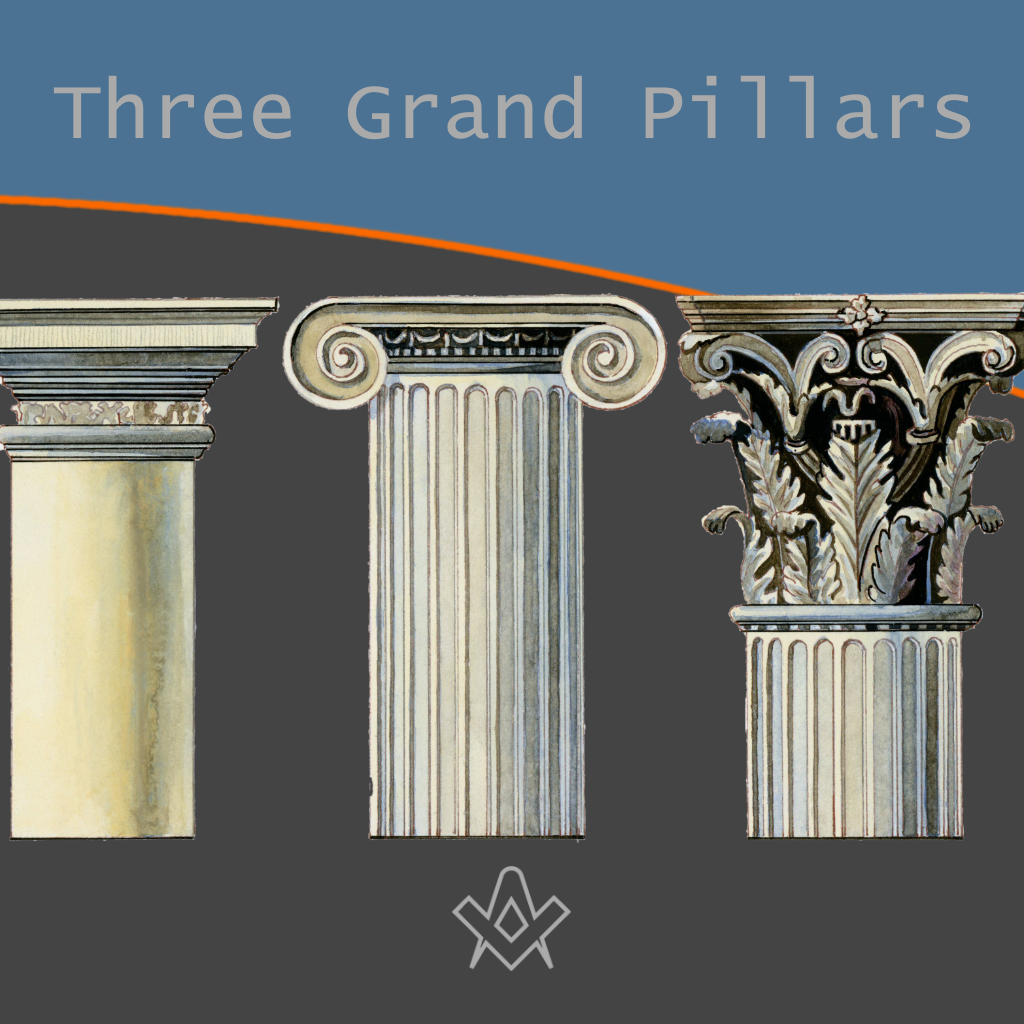In the Entered Apprentice’s Degree we learn of Wisdom, Strength, and Beauty. In the Fellowcraft’s Degree we hear of the Doric, Ionic, and Corinthian Columns. In the Master Mason’s Degree we hear again of the Three Grand Pillars.
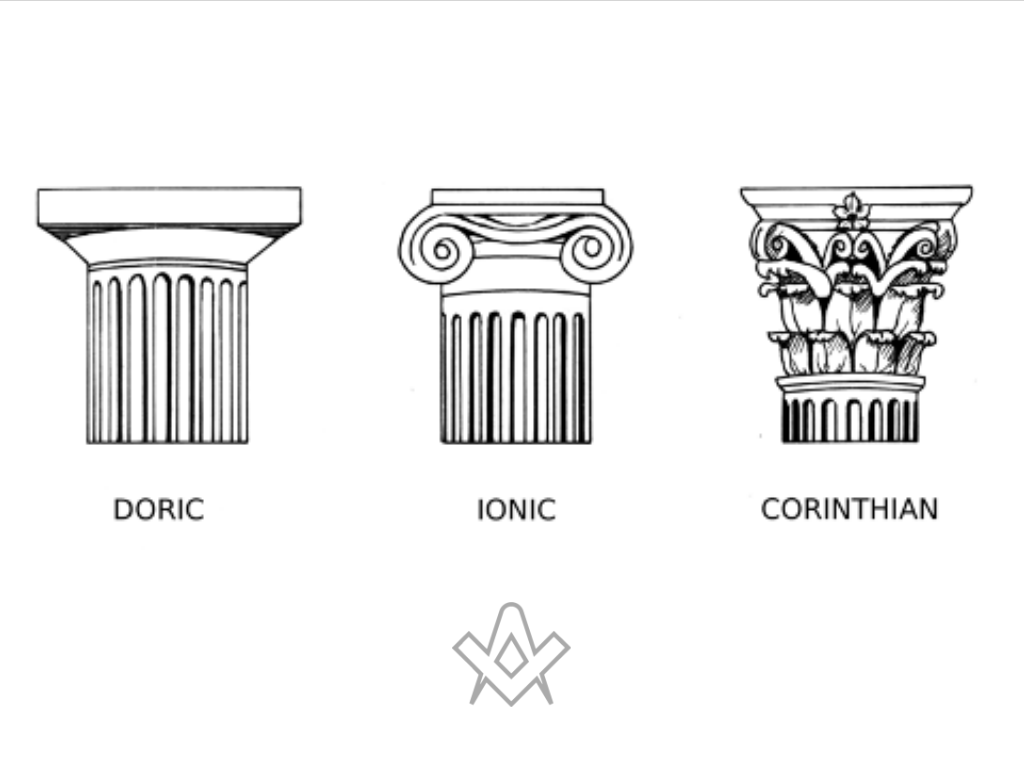
In each degree as we progress more and more toward the East from whence comes Masonic Light we discover more interesting meanings of the supports of a lodge.
It would take pages where here are but paragraphs even to list the references to wisdom in the Great Light, the word occurs in the Bible two hundred and twenty-four times!
For Masons, however, perhaps the most illuminating passages regarding wisdom come from Proverbs (ii 2; iii 13, 14; viii 11).
Solomon said:
Incline thine ear unto wisdom and apply thine heart to understanding.
Happy is the man that findeth wisdom and the man that getteth understanding.
For the merchandise of it is better than the merchandise of silver and the gain thereof than fine gold.
For wisdom is better than rubbies and all the things that may be desired are not to be compared to it.
Knowledge is cognizance of facts. Wisdom is the strength of mind to apply its knowledge.
A Mason may know every word of our ritual from the beginning of the Entered Apprentice’s Degree to the final words of the Sublime Degree of Master Mason and still have no wisdom, Masonic or otherwise.
Many a great leader of the Craft has been a stumbling, halting ritualist, yet possessed in abundance a Masonic wisdom which made him a power for good among the brethren.
Knowledge comes from study; wisdom from experience and reflection. Knowledge may be the possession of the criminal, the wastrel, the “irreligious libertine,” and the atheist.
Wisdom comes only to the wise, and the wise are ever good.
![]()
How may I gain Masonic wisdom?
The first of the Three Grand Pillars which support our Institution should be to every Mason a symbol of the real need to become wise with the goodness of Masonry, skilled in the arts of brotherhood, learned in the way to the hearts of his brethren.
If he know not and ask, “How may I gain Masonic wisdom?” let him find the answer not in the ritual, important though it is; not in form and ceremony, beautiful though they are with the strength of repetition and age – let him look to the Five Points of Fellowship, for there is the key to all real wisdom concerning the brotherhood of man.
The second of our Grand Pillars, without which nothing endures, even when contrived by wisdom and adorned by beauty, we know in two forms in our daily lives.
First, the strength which lies in action power, might – the strength of the arm, the engine the army.
Second, that other, subtler strength which is not the less strong for being passive the strength of the foundation which endures, the strength of the principles my which we live, individually, collectively, nationally – Masonically,
It is the second form of strength with which the Speculative Mason is concerned. Freemasons build no temporal buildings.
We do lay the cornerstone of the public building in the Northeast Corner, but the action is symbolic, not practical.
The operative Mason who sets the stone for the Grand Master would place it as strongly in the building without our ceremony as with it.
Our building is with the strength which endures in hearts and minds rather than that which makes the sundry “materials of which an edifice is composed” to do man’s will.
The Freemason constructs only the spiritual building; his stone is his mind, mentally chipped by the common gavel to a perfect ashlar.
![]()
the vices and superfluities of life
The strength by which he establishes his kingdom is not a strength of iron but a strength of will; his pillars support not a wall to keep out cowans and eavesdroppers but a character proof against the intrusion of “the vices and superfluities of life.”
Beauty is represented in a Masonic lodge by the Corinthian column, most beautiful of the ancient orders of architecture; by the Junior Warden who observes the sun at meridian when the day is most beautiful; by Hiram Abif, who beautified and adorned the Temple.
We are taught that it is as necessary that beauty adorn all great and important undertakings as that wisdom contrive or strength support them.
In the story of Solomon’s Temple in the Great Light we find detailed descriptions of what was evidently, to those who went into details of its construction, the most beautiful building possible for the engineering skill, the wealth and the conception of the people of Israel.
![]()
Masonic conception of beauty cannot be of material beauty
Artists dispute and philosophers differ about what is beauty. All of us have our individual conceptions of what constitutes it.
As no two men are agreed as to what is beautiful in a material sense, the Masonic conception of beauty cannot be of material beauty.
Its symbol of beauty – the sun at meridian – is actually too blinding to see.
If we think the sun beautiful, it is for what it does for us, rather than for what it is.
The Masonic Pillar of Beauty, then, must be the symbol of an inward loveliness, a beauty of the mind, of the heart; a beauty of the spirit.
Our Corinthian column is to us not merely the support of a building but that which upholds a character.
Our Junior Warden represents not only the beauty of the sun at meridian, but the illumination by which a life is made beautiful.
Hiram Abif is to us not only an exemplary character but an ideal to follow, a tradition to be preserved, a glory for which we may strive.
A man may keep every law, go to church three times on a Sunday, belong to our Order, subscribe to every charity and still be mean of spirit, unhappy to live with, selfish, inconsiderate, disagreeable.
Such an one has not learned the inward meaning of the Pillar of Beauty.
He has never stood symbolically in the South. For him the sun at meridian is but the orb of day at high noon and nothing more.
![]()
beauty is as much a lamp to live by as are wisdom and strength
But for the real Mason, who takes lessons of the Three Grand Pillars to heart, beauty is as much a lamp to live by as are wisdom and strength.
He finds beauty in his fellow man because his inner self is beautiful.
His house not made with hands is glorious before heaven, not because in imitation of Solomon he “overlaid also the house, the beams, the post and the walls thereof and the doors thereof, with gold” but because it is made of those stones which endure before the Great Architect – unselfishness, and kindness, and consideration, and charity, and a giving spirit; of brotherhood genuine because it springs from the heart.
For these things endure. Material things pass away. The Temple of Solomon is but a memory.
Scattered the stones, stolen the gold and silver, destroyed the lovely vessels cast by Hiram Abif.
But the memory, like the history of the beauty and the glory which was Solomon, abide unto this day.
So shall it be with our house not built with hands, so be it we build with the beauty which Masons teach.
Article by: Carl H. Claudy
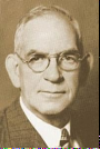
Carl Harry Claudy (1879 – 1957) was an American author, magazine writer, and journalist for the New York Herald.
His association with Freemasonry began in 1908, when, at the age of 29, he was raised a master Mason in lodge Harmony No. 17 in Washington, DC. He served as its master in 1932 and eventually served as Grand Master of Masons in the District of Colombia in 1943.
His Masonic writing career began in earnest when he became associated with the Masonic service Association in 1923, serving as associate editor of its magazine, The master mason, until 1931.
Under his leadership the service Association was brought to a place of predominance through his authorship and distribution of the short talk bulletin which made his name familiar to virtually every lodge in the country.
 Old Tiler Talks - Eyes Lifted High The Old Tiler Talks first published in 1925, by Carl Claudy, is a series of short anecdotal stories told in the setting of a new member asking an old tiler for his opinion on various masonic topics. These short articles are still very relevant, 100 years on, and hopefully provide some insight to new members today. |
 Old Tiler Talks - Masonic Libraries The Old Tilers talks first published in 1925, by Carl Claudy, is a series of short anecdotal stories told in the setting of a new member asking an old tiler for his opinion on various masonic topics. These short articles are still very relevant, 100 years on, and hopefully provide some insight to new members today. |
 Old Tiler Talks - So Many Rascals "Why are there so many rascals in the Fraternity, and why don't we turn them out?" a new member voiced to the old tiler for his opinion. These short articles are still very relevant, 100 years on, and hopefully provide some insight to new members today. |
 Old Tiler Talks - The Greatest Work The Old Tiler asked, "what is the greatest work of Masonry?" The New Brother sat by the guardian of the door and pulled out his cigar case. - Another instalment of wisdom by Carl Claudy, The Greatest Work |
 Old Tiler Talks - Why Men Love Freemasonry The 'Old Tiler Talks' first published in 1925, by Carl Claudy, is a series of short anecdotal stories told in the setting of a new member asking an old Tiler for his opinion on various Masonic topics. These short articles are still very relevant, 100 years on, and hopefully provide some insight to new members today. |
 Old Tiler Talks - Seeking a Little Light The Old Tilers talks first published in 1925, by Carl Claudy, is a series of short anecdotal stories told in the setting of a new member asking an old tiler for his opinion on various masonic topics. These short articles are still very relevant, 100 years on, and hopefully provide some insight to new members today. |
 The new mason laments that practically speaking, Masonry is a failure, and it depresses me … Masonry cannot be a failure, because men fail as Masons. The Old Tilers talk by Carl Claudy |
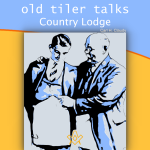 Old Tiler Talks - Country Lodge A lesson in the importance of an open mindset to observe, not to judge, but to learn and accept that we can achieve the desired outcome employing a different process. by Carl Claudy |
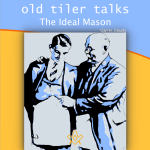 Old Tiler Talks - The Ideal Mason "What's your ideal of Freemasonry?" asked the Younger Mason - A short anecdotal story told in the setting of a new member asking an old tiler for his opinion on various masonic topics by Carl Claudy |
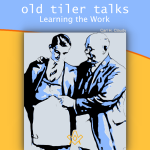 Old Tiler Talks - Learning the Work A short anecdotal story told in the setting of a new member asking an old tiler for his opinion on various masonic topics by Carl Claudy |
 Masonic first appointments and promotions might appear to be inequitable for one point a view, but some times, one point does not show the whole picture. A perfectly articulated story by Claudy, we should not compare one persons abilities with another. |
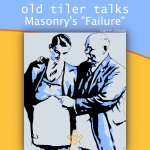 Old Tiler Talks - Masonry's 'Failure' Masonry fails because it doesn’t interest men sufficiently to make them practice what they preach. A perfectly articulated story by Claudy Masonry does not fail men. Men fail Masonry. Masonry has the teachings. |
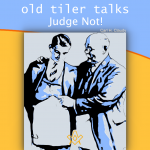 A perfectly articulated story by Claudy reminds us of a lesson from the Second Degree Charge; in the decision of every trespass against our rules, judge with candour, admonish with friendship, and reprehend with mercy. |
 Old Tiler Talks - A Masonic Speech A Masonic Speech - I can tell you the essence of appeal. It is drama. If you want your hearers to hang on your words, dramatize your subject |
 Old Tiler Talks - A Mason's Christmas A Mason's Christmas - Do you believe in Christmas celebrations should be held by the lodge ? Should members be asked to contribute to one and engage in Christmas festivities ? What is the old tilers take on this ? |
 Advertising - We would do more good in the world if we advertised ourselves more… Why ? |
 Uncover the mystery behind one of the oldest and most widespread symbols denoting God. |
 Do you want to discover the originals of the five points of fellowship ? |
 The mystery behind the two great pillars that stood at the porchway entrance of King Solomon Temple |
 Three numbers, what are their masonic significance? Pythagoras has something to say about them |
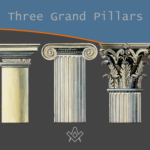 What are the Three Grand Pillars ?, wisdom, strength, and beauty - then later we hear of the Doric, Ionic, and Corinthian columns |
 This emblem contains more real food for thought than any other in the lecture of the Sublime Degree. |
 The Hiramic Legend is the glory of Freemasonry; the search for that which was lost is the glory of life |
 How are the Fellowcraft's five steps connected the five senses of human nature |
 How to explain the principle tents of the craft to a newly made brother |
 What are the lesser lights and where are they placed on our Lodges |
 Like so much else in Freemasonry the Middle Chamber is wholly symbolic |
 In the true sense of the words Freemasonry is not a secret society but a society with secrets. |
 Three Great Lights – the Volume of the Sacred Law, the Square, and the Compasses |
 Entered Apprentice Lambskin Apron; More ancient than the Golden Fleece or Roman Eagle, more honourable than the Star and Garter ... |
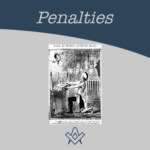 To the initiate, the penalty in his obligation comes with a shock of surprise and sometimes consternation. |
 What is a point within a circle |
masonic knowledge
to be a better citizen of the world
share the square with two brothers

click image to open email app on mobile device



